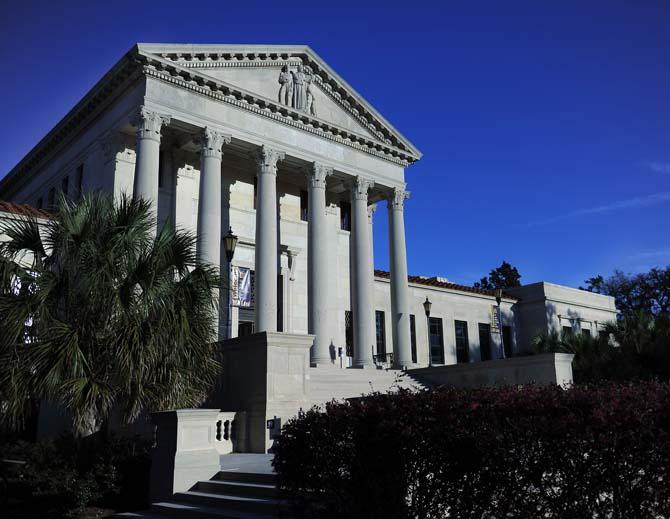Gone are the days of walking across the stage with a law degree and crossing over into the corporate world with certainty that a six-figure job will be waiting for you.
That’s right, one of America’s most prominent and respected professions is slowly crumbling before our eyes.
“Law school applications are headed for a 30-year low, reflecting increased concern over soaring tuition, crushing student debt and diminishing prospects of lucrative employment upon graduation,” The New York Times reported January 30.
So where can we start dishing out the blame?
Since this isn’t SportsCenter, I can’t rattle off a top 10 list. Unfortunately, it’s a much larger and cultural issue at hand.
First and foremost, students across the nation aren’t quite as dense as their Facebook profile pictures brandishing drinks in hand might portray. Faculties in both prestigious and local law schools are also aware of this.
Michelle J. Anderson, dean of the City University of New York School of Law told the Times, “Most law schools are too expensive, the debt coming out is too high and the prospect of attaining a six-figure-income job is limited.”
Any student prepping for the LSAT and weighing the security of a three-year investment — almost equivalent to taking out a second mortgage — can clearly see, things just aren’t like they used to be.
Now this is where things should get interesting.
There is a “38 percent decline from 2010,” according to the Law School Admission Council. This leads me to believe institutions across the country are not only scrambling for alternative resources and plans but lobbying for radical shifts in this education sector.
Back me up here, William D. Henderson, professor of law at Indiana University.
“We are going through a revolution in law with a time bomb on our admissions books,” Henderson told the Times.
That’s odd. We’re kind of going through some exorbitant changes in the health sector as well.
So are applications for higher education relating to healthcare down also?
Nope. In fact, applications to medical school are steadily rising, giving you something to ponder about the next time you’re walking down the middle of the Parade Ground, staring at the vast pillars and steps leading to the Paul M. Hebert Law Center.
Is it a Barack Obama conspiracy theory to destroy all forms of institutionalized education of American law?
That’s a bit of a stretch, but there is a direct correlation between the struggling job market, the floundering economy and law school applications.
And while it would be completely asinine to tag this problem on a political party that has experienced so much global economic turmoil, quite a few liberal arts students are hoping that a drastic shift in the economic sector will draw the law school curve upward once again.
“In the ’80s and ’90s, a liberal arts graduate who didn’t know what to do went to law school,” Henderson said. “Now you get $120,000 in debt and a default plan of last resort whose value is just too speculative.”
Heard that, professor. So here is the great debacle: If you don’t have any sort of connection to fall back on, is law school risk worth the reward?
The sad answer for most in that position is probably not, even when considering how coveted a law degree once was.
Like I said before, things just aren’t like they used to be.
John Polivka is a 21-year-old creative writing junior from Houston.





